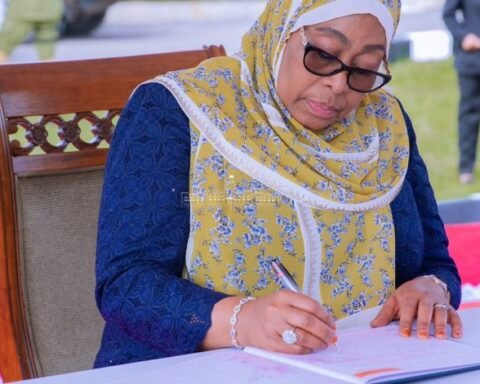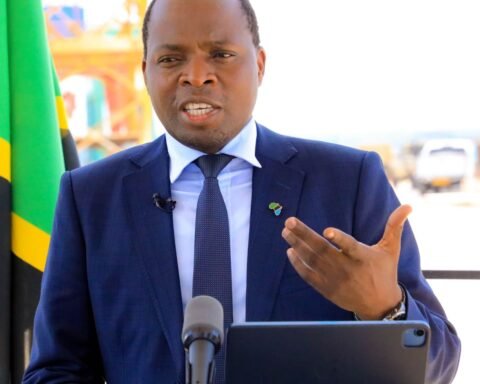The Government of Zanzibar has reaffirmed its determination to forge strategic partnerships aimed at transforming the Blue Economy into a tool for empowering women and youth, while enhancing sustainable use of marine resources.
Speaking during the closing ceremony of a regional forum held in Zanzibar, Eng. Omar Saleh Muhammed, a coordinator at the Ministry of Blue Economy and Fisheries, emphasized the importance of inclusive policies that actively involve local communities, especially women and youth, in shaping the future of ocean governance.
“Our oceans have the potential to transform livelihoods. But we must ensure that access and benefits are inclusive,” Eng. Muhammed told delegates.
The three-day conference attracted participants from East Africa, West Africa, and island states like Comoros and Cabo Verde. The event fostered dialogue on unlocking economic potential in fisheries, aquaculture, marine biotechnology, and eco-tourism, while tackling climate resilience and gender equity.
Key areas of discussion included:
- Expanding marine value chains for products like seaweed and sea cucumbers
- Strengthening cross-border trade under the AfCFTA framework
- Integrating youth-led innovation in coastal development
- Promoting gender equality and sustainable livelihoods for small-scale fishers
Among the passionate voices was Salma Mwishaha, a seaweed entrepreneur from Mtwara, who said that providing women with access to training, financing and modern tools is crucial.
“We have the skills and drive, but we need proper support systems,” she noted.
Youth advocate Ali Mabrouk from Pemba shared how his sea cucumber hatchery is creating jobs for his peers. “If young people are trusted and invested in, we will solve the unemployment crisis ourselves,” he said.
The forum also showcased digital innovations like mobile-based fish tracking, solar-powered drying machines, and marine conservation apps developed by Tanzanian youth.
Zanzibar’s Blue Economy strategy aligns with the African Union’s Agenda 2063 – the continent’s master plan for inclusive growth and sustainable development.
Under this vision, the island is positioning itself as a model for marine conservation, value addition, and inclusive policymaking. The government is set to roll out a five-year implementation roadmap that includes training centers, grants for women-led fisheries businesses, and green port infrastructure to reduce marine pollution.
Eng. Muhammed called on development partners, research institutions, and regional bodies to deepen collaboration, noting that “Africa’s ocean future depends on shared responsibility.”
Delegates called for the integration of the Blue Economy into national education systems, greater enforcement of marine laws, and pan-African cooperation to tackle illegal fishing and ocean degradation.
They hailed Zanzibar’s inclusive approach and recommended that it be documented as a case study for the rest of the continent.







